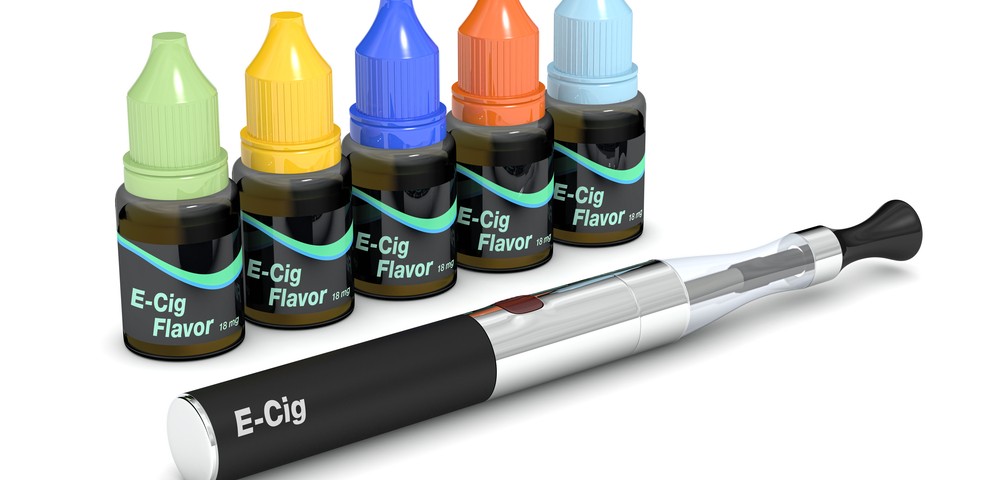Researchers found flavoring chemicals like diacetyl, previously reported to be associated with severe respiratory disease, in the juices used in e-cigarettes. The study, entitled “Flavoring Chemicals in E-Cigarettes: Diacetyl, 2,3-Pentanedione, and Acetoin in a Sample of 51 Products, Including Fruit-, Candy-, and Cocktail-Flavored E-Cigarettes,” was published in the Environmental Health Perspectives journal.
E-cigarettes contain not only nicotine but also flavorings, with more than 7,000 e-cigarette flavors currently available on the market. While the major concern with e-cigarettes has primarily focused on nicotine exposure, more recent studies are drawing attention to their flavoring chemicals.
In the early 2000s, the use of diacetyl in the butter flavoring of microwave popcorn was reported to be associated with a severe lung disease in popcorn plant workers. Flavorings in widespread use across many industries can include diacetyl, as well as 2,3-pentanedione and acetoin (present in the food industry), and flavorings are common in e-cigarette juices and cartridges.
A team of researchers at The Harvard T.H. Chan School of Public Health, Boston, hypothesized that these three chemical compounds are likely used in the manufacturing of flavored e-cigarettes. To investigate, they selected 51 e-cigarette flavors (sold by leading brands) and analyzed their content for diacetyl, 2,3-pentanedione, and acetoin by promoting the full discharge of the e-cigarettes’ content and capturing its air stream.
The team detected diacetyl in 39 out of the 51 flavors tested, highlighting that the flavors selected were particularly appealing to children, teenagers, and young adults. Moreover, at least one of the three chemicals was found in 47 flavors. Diacetyl was notoriously present in “tobacco” and “menthol” flavorings, but these two flavorings did not appear on the OSHA (Occupational Safety and Health Administration) list as likely containing diacetyl.
These results show that diacetyl and other high-priority flavoring chemicals are present in e-cigarettes. Due to their association with severe respiratory diseases like bronchiolitis obliterans, the research team strongly recommends further research to evaluate the potential exposure to these chemicals, together with its noxious effects, through flavored e-cigarettes.

